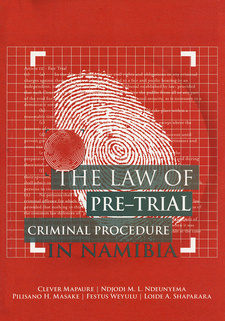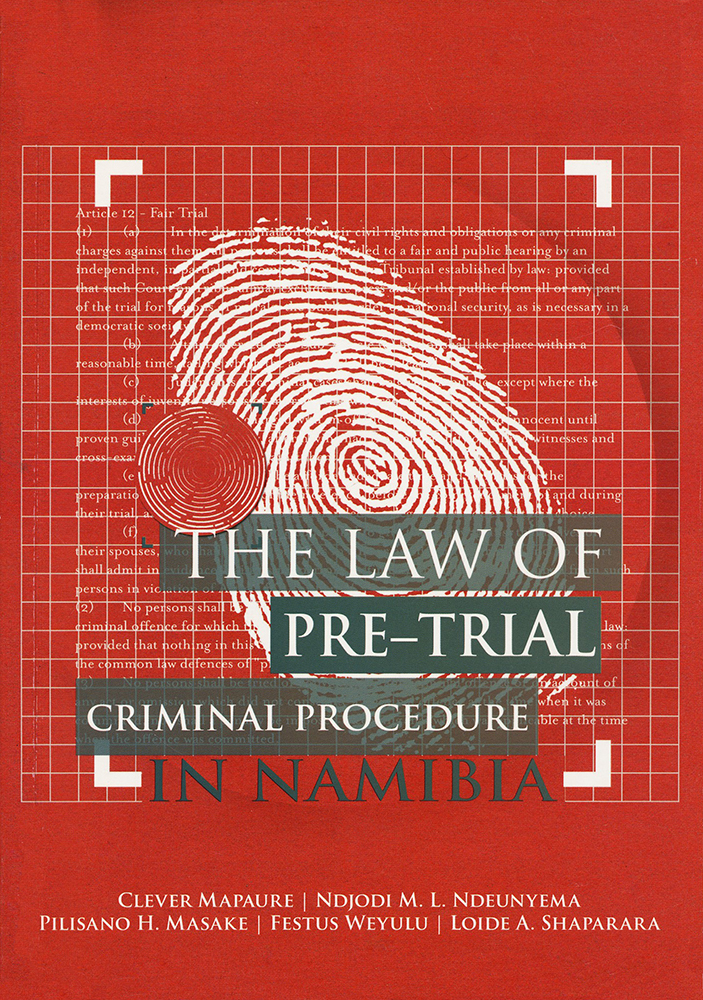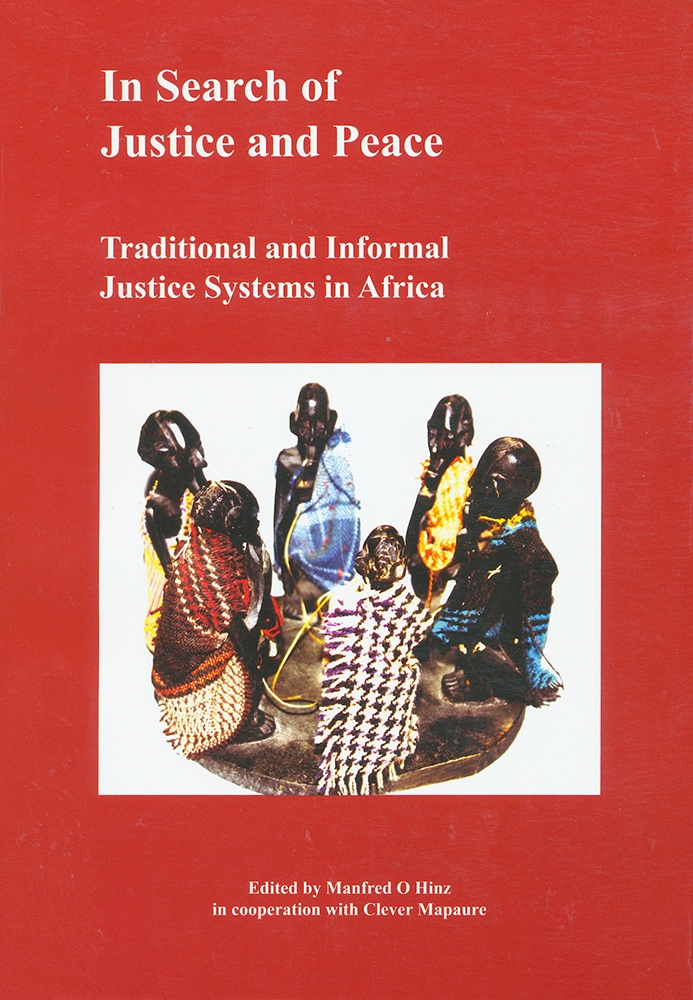The Law of Pre-Trial Criminal Procedure in Namibia, by Clever Mapaure et al.

The Law of Pre-Trial Criminal Procedure in Namibia, by Clever Mapaure, Loide Shaparara, Festus Weyulu, Ndjodi Ndeunyema, and Pilisano Masake. University of Namibia Press. Windhoek, Namibia 2014. ISBN 9789991642239
The Law of Pre-Trial Criminal Procedure in Namibia is a product of Clever Mapaure's and his co-editor's commitment to see the development of Namibian-tailored academic literature on the various disciplines of law that are of widespread applicability in our legal system, and our cognisance of the scarcity of literature on this very central subject after more than two decades of the independent development of jurisprudence in Namibia.
The Law of Pre-Trial Criminal Procedure in Namibia
1. INTRODUCTION TO THE NAMIBIAN CRIMINAL JUSTICE SYSTEM
1.1 INTRODUCTION
The Namibian legal system is to a great extent a prisoner of its own history and its institutions are a reminder of the events that led to the creation of a new nation in the first quarter of 1990. Namibia is a constitutional democracy and its legal system is characterised as Roman-Dutch and (to a lesser extent) English common law system, which for historical reasons has its roots in the South African legal system. The law as applied in Namibia evidences plurality of legal codes with principles of the common law, customary law, the Namibian Constitution (hereafter referred to as the Constitution), and international legal norms regulating various affairs within the country. The three major legal systems of the world today consist of civil law, common law, and religious law. However, each country often develops variations on each system or incorporates many other features into the system. It will be shown in this chapter that Namibia follows the common law system but this system also incorporates elements of civil law and equity. Since 1990, Namibia has created its identity, in developing its own criminal jurisprudence, and is departing from the legal intellectual positions of colonialism. Since 1990, both criminal procedure and criminal law have been taking new shape in many of their aspects. Namibian courts have pronounced themselves on a number of criminal issues, departing from the inherited principles of South African law. Legislation impacting on criminal aspects has been passed in a bid to keep up with the demands, aspirations, spirit and vision of the Namibian Constitution and its people, and significant law reform projects are in the pipeline to further develop Namibian law for the realisation of constitutional and international legal imperatives. This maverick departure is something to be appreciated, despite contradictions and challenges which present themselves in the process. A legal system has been defined as a set of legal institutions, procedures and rules, as opposed to a legal tradition, which has been defined as a set of deeply rooted historically conditioned attitudes about the nature of law, the role of the law in the society, the political ideology, the organization and operation of the legal system. See de Cruz, P. 1999. Comparative Law in a Changing World (2nd edition). London: Cavendish Publishing Limited.
1.2 FOUNDATIONS OF THE NAMIBIAN CRIMINAL JUSTICE SYSTEM
The Namibian criminal justice system cannot be discussed without having a look at the history thereof, as derived from its colonial history. Before 1884, Namibia as we know it today was then known as Namaqualand, and was inhabited by traditional communities, which mainly applied customary law. These communities lived separately from one another, and there was no centralised government bureaucracy or a central law-making body akin to a modern parliament. In 1878, Britain annexed what is now Walvis Bay and made it part of the Cape Colony. In 1884, the rest of Namaqualand was occupied by the Germans and they named it Dentsch-Sudwestafrika (German South West Africa). The Germans enacted a number of pieces of legislation which survived only until 1915, when the South African military unseated the German occupiers. The occupation of German South West Africa by the South African military government was reinforced by the Proclamation of Martial Law 15 of 1915. In 1919, under the Versailles Treaty, Germany was divested of its authority over German South West Africa and the territory was made a League of Nations Mandate territory. [...]
This is an excerpt from The Law of Pre-Trial Criminal Procedure in Namibia, by Clever Mapaure et al.
Title: The Law of Pre-Trial Criminal Procedure in Namibia
Editiors: Loide Shaparara, Festus Weyulu, Clever Mapaure, Ndjodi Ndeunyema, Pilisano Masake
Genre: Legal Sciences; Legal Studies
Publisher: University of Namibia Press
Windhoek, Namibia 2014
ISBN 9789991642239
Softcover, 17 x 24 cm, 526 pages
Shaparara, Loide und Weyulu, Festus und Mapaure, Clever und Ndeunyema, Ndjodi und Masake, Pilisano im Namibiana-Buchangebot
The Law of Pre-Trial Criminal Procedure in Namibia
The Law of Pre-Trial Criminal Procedure in Namibia explains the rights of individuals, the duties of law enforcement officers, and the procedures of the courts in criminal cases in Namibia.
Knowledge lives in the lake. Case studies in environmental and customary law from southern Africa
Knowledge lives in the lake: Case studies in environmental and customary law from southern Africa presents research within the framework of the international Biodiversity Monitoring Transect Analysis in Africa (BIOTA) Project.
In search of Justice and Peace. Traditional and Informal Justice in Africa
In search of Justice and Peace introduces traditional and informal justice in various parts of Africa to secure justice and peace at the local level.



